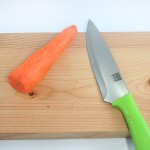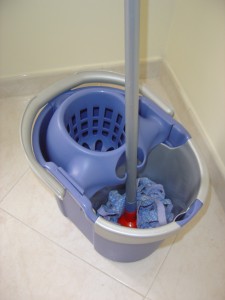Housekeeping lessons in Haitian Creole – Part I
I wish it were possible to follow the Erma Bombeck school of housework, namely to do no more than sweep the room with a glance. Alas, dusty Port au Prince makes for much dirt – and work – in the home.
So to my rather hilarious attempts at keeping house in Port au Prince alongside the dignified Mme Marie Josette, who speaks only kreyol and French. As for me, mwen pa pale franse e mwen pale tikras Kreyol aiysyen. Which simply means, I don’t speak French and I speak only a very little Haitian Creole. But Mme Josette, who works at a decidedly stately pace, is the very soul of courtesy and bends a listening (if uncomprehending ear) to my efforts to make myself understood.
It’s got to be done. As Arthur K Spears, City University New York anthropologist and kreyol linguist, writes, “Haitian Creole has the largest number of speakers of any creole language, an official orthography” and it is emphatically “not a corrupt form of French but a separate language governed by its own grammatical rules, just as French is separate from Latin and other Romance languages.” Point taken. Clearly, it’s a blessing I know French only by reputation. At least, I can’t presume to look down on kreyol’s African sounds – ng, for eg. As also, it’s distinctly un-French (read ‘not breathy’) pronunciation.
So far, Mme Josette and I have worked out – and through – the following:
Maape (phonetic) : to mop (When you say ‘eske ou maape souple’, you mean ‘can you mop please’)
Bale: to sweep (eske ou bale souple, can you sweep please)

To chop vegetables is koupe legime
Pase: to iron (eske ou fe pase, can you iron please)
Chemise: shirt
Lavi twal la souple: Wash the cloth please
Sa twop: That is too much
Koupe legime: cut vegetables (eske ou koupe legime nan rondel e kib, can you cut vegetables into rings and cubes
It’s got to be done. As they say, housework is something you do that nobody notices until you don’t do it.
It helps to include some basic courtesies. Mmme Josette seems to appreciate my bumbled efforts at kreyol pleasantries:
Bonjou, ki jan ou ye? Good morning, how are you?
Se bon, mesi. It’s good, thank you.
Babay, n a we lendi nan ywit: Bye, see you Monday at 8
Have a good weekend: Gen yon bon wikenn
More soon. (Pi bone).



